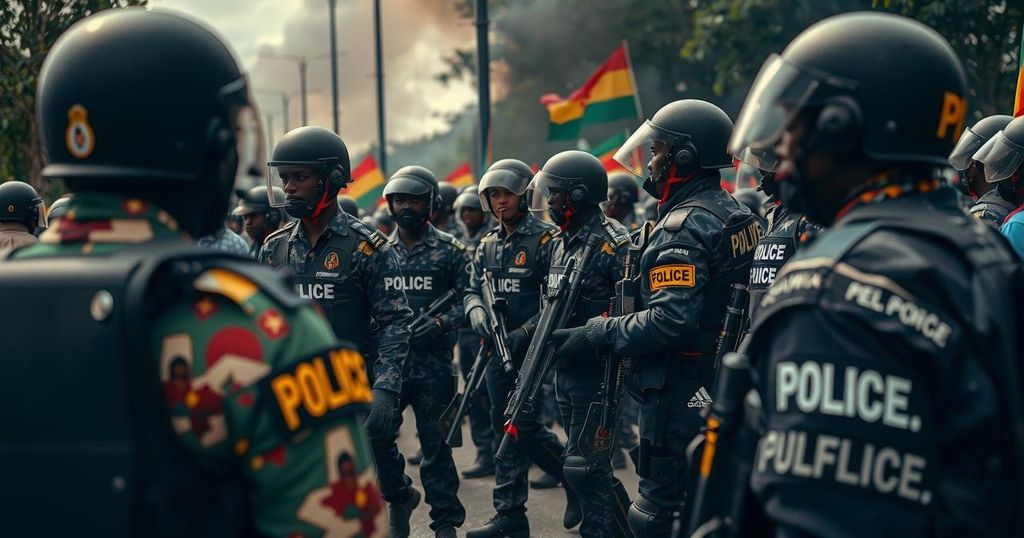Mozambique is experiencing a severe crisis following the recent presidential elections, leading to police violence against protesters, including the tragic deaths of minors like Antonio Juaqim. The election result, declaring Frelimo’s Daniel Chapo as the winner amid claims of rigging by opposition leader Venâncio Mondlane, has sparked widespread dissent and demands for justice. This unrest highlights profound societal divisions and a youth increasingly frustrated with the current political leadership.
Mozambique is currently engulfed in a crisis following the controversial results of the recent presidential elections. The protests against the ruling Frelimo party turned lethal when police opened fire on demonstrators, resulting in the tragic deaths of several individuals, including minors. Among the deceased was 16-year-old Antonio Juaqim, who was shot while participating in a pot-banging protest in response to the election outcome. His uncle recounted the chilling details of Antonio’s death and the CCTV footage showing police firing at protesters.
The electoral commission declared Frelimo’s Daniel Chapo as the victor, with a significant margin over his closest rival, Venâncio Mondlane, who alleged the election was rigged. In the wake of this declaration, widespread protests erupted, initially on the streets and now predominantly within homes. Participants bang pots and pans nightly as a form of dissent against Frelimo’s extended rule. However, the protests have led to violent clashes, with reports indicating up to 40 deaths, including children, attributed to police actions.
While the police commander expressed sympathy for the victims, he shifted blame onto protesters, particularly claiming they utilized children as shields. Critics, including political party leaders, have accused law enforcement of excessive force and suppressing dissent to safeguard the ruling regime. Analysts suggest a growing discontent among the youth, who are increasingly seeking economic opportunities rather than being captivated by the historical narrative of independence. The current situation stands as one of the most turbulent periods in Mozambique’s democratic history, raising concerns about human rights and governance.
As the nation grapples with these profound issues, those affected mourn the loss of young lives, urging calls for justice amid fears that the political landscape is shifting dangerously. With the courts yet to rule on the election outcome, the sense of unrest, fueled by grief and anger, persists in Mozambique.
The crisis in Mozambique follows a contentious presidential election that has led to nationwide protests against the ruling Frelimo party, which has maintained power since Mozambique’s independence 49 years ago. The elections, held last month, were marred by allegations of rigging, prompting discontent among opposition supporters. This tension has resulted in protests marked by public demonstrations and subsequent violent confrontations with the police. The recent events have highlighted the fragility of the political situation in Mozambique and the urgent need for meaningful dialogue and accountability regarding human rights.
In summary, the crisis in Mozambique following the recent presidential elections reflects deep societal divisions and a loss of life that underscores the urgency of addressing grievances against the ruling party. The tragic deaths of individuals, particularly children, during protests have sparked international concern regarding human rights practices in the country. As the political situation unfolds, the people’s demand for justice and economic stability remains paramount, suggesting a growing desire for change that cannot be ignored by authorities.
Original Source: www.bbc.com






